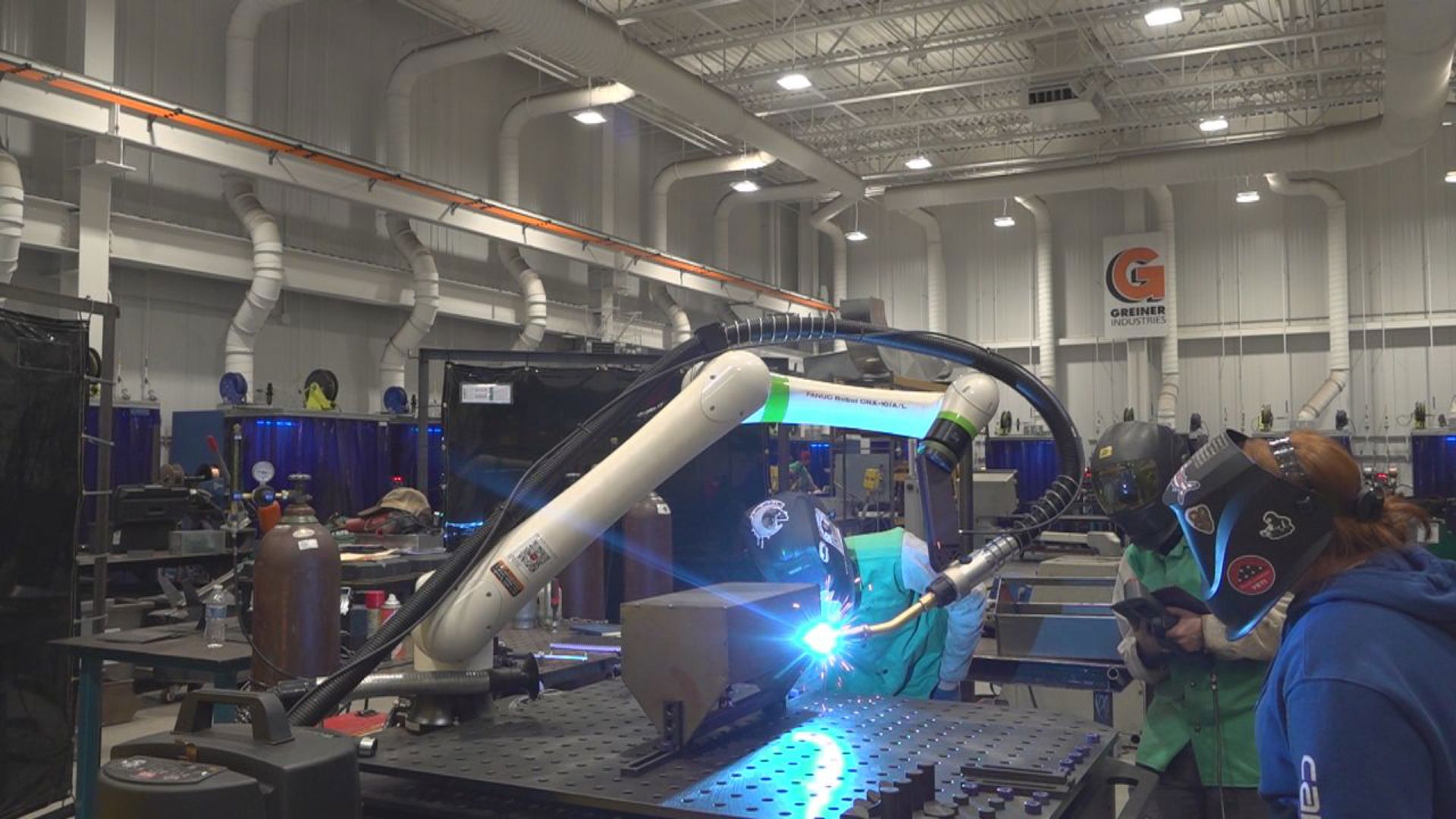LANCASTER, Pa. — Last month, thousands of dockworkers went on strike across the U.S. over concerns about wages and automation taking their jobs. However, a Lancaster County college is working with automation and a new $150,000 welding robot to increase their students’ value for the workforce.
“It’s giving us a leg up in the industry,” said Ashley Miller, a freshman at Thaddeus Stevens College of Technology, in reference to the college’s new welding robot, a technology that not many colleges across Central Pennsylvania have access to.
“Coming in here and having a robot was quite shocking because we had nothing like that at my high school. [It’s] definitely a really cool experience and something that will help us in the future,” said Miller.
According to PWC’s Annual Global Workforce survey, almost a third of respondents say they were worried about their jobs being replaced by technology.
A fear that Thaddeus Stevens College of Technology is turning on its head.
“This is a Cobot, it works along with you, and it helps with repetitive tasks but there’s always going to be a place for human aspects in welding,” said Zach Shaffer, Thaddeus Stevens College of Technology student.
“At Thaddeus Stevens College we have approximately 20 jobs available for each graduate and that’s from companies that contacted the college looking for people. So, the problem is more trying to get enough people into the jobs,” said Jim Stewart, Thaddeus Stevens College of Technology professor.
With a click of a button on a tablet, the cobot is programmed to weld an object safely and accurately.
Educators say the robot allows the operator to distance themselves from welding fumes and takes physical tasks off the operator’s plate. Making room for women and people who may be disabled to have more interest in the field.
“I injured my right shoulder about midway through the semester. So, I’ve had to switch hands and that’s affected the quality of my welds quite a bit. So, for somebody who’s in my situation, the robot is going to put a lot less stress on their arms, it’s going to be a lot easier for them to operate and they’re just going to have really good quality welds,” said Max Romanauskas, a Thaddeus Stevens College of Technology student.
“You don’t have to physically do the weld yourself and be in there with the ark. So, it [could] be more attractive to women to be more interested in the welding field,’ said Miller.
In the future, Thaddeus Stevens College hopes to offer students an opportunity to use their automation skills outside the classroom, using robots to help build structures or bridges in the area.

